Is Tocopherol Good for Skin: The Definitive Guide to Vitamin E Benefits
Tocopherol, commonly known as Vitamin E, has been widely regarded for its benefits in skin care due to its potent antioxidant properties. It's a fat-soluble vitamin that plays a vital role in protecting skin from damage caused by free radicals, which can lead to premature aging and inflammation. Studies have shown that when tocopherol is applied topically, it can penetrate the skin effectively, providing a range of benefits including enhanced healing, reduced scarring, and improved skin moisture.
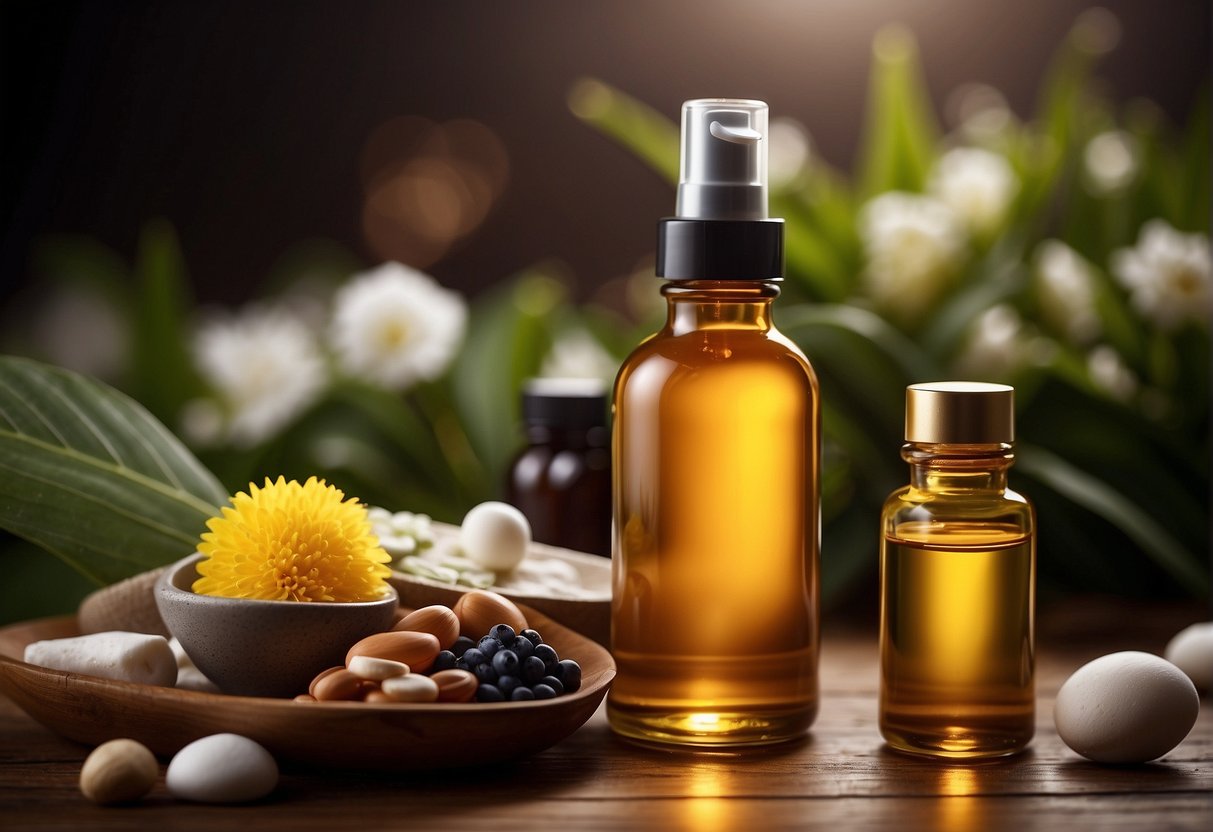
Our skin faces daily challenges from exposure to the sun and environmental pollutants. Tocopherol's protective qualities can help mitigate the effects of these external stressors, ensuring the skin remains healthy and resilient. Furthermore, tocopherol has been found to assist in the stabilization of skin's barrier function, which is essential for maintaining hydration and protecting against irritants. Tocopherol's efficacy in skincare formulations varies, however, and depends on its stability, concentration, and the presence of other compounds that can enhance its activity.
Key Takeaways
- Tocopherol acts as a powerful antioxidant to protect skin from free radical damage.
- It contributes to improved skin healing, moisture, and barrier function.
- The effectiveness of tocopherol in skincare depends on its formulation and interaction with other ingredients.
Tocopherol in Skin Care
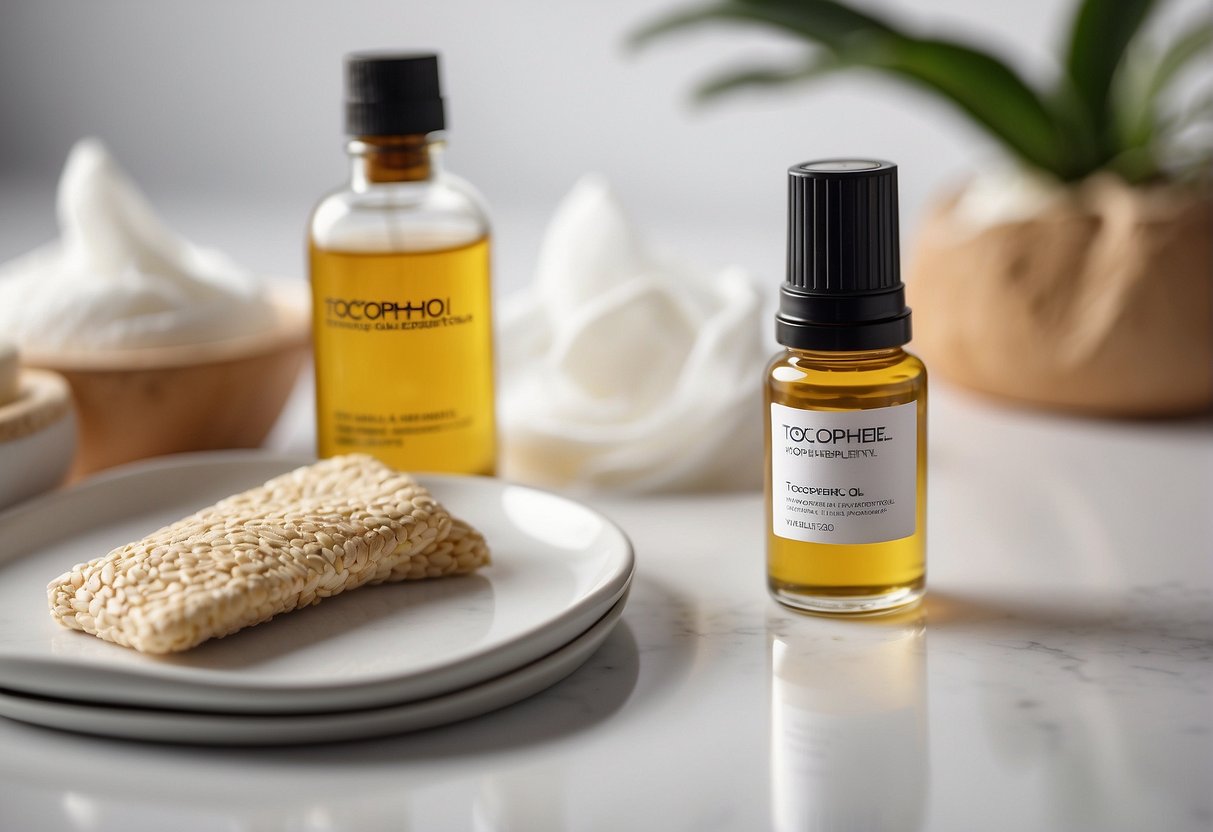
We recognize tocopherol as a vital component in skin care due to its antioxidant properties and skin barrier enhancement capabilities. It plays a crucial role in managing skin conditions such as acne through its anti-inflammatory effects.
Role in Antioxidant Protection
Tocopherols, including alpha-tocopherol, act as skin protectants by neutralizing free radicals, which are unstable molecules that can cause oxidative damage to the skin. This antioxidant function helps to prevent premature aging and maintains healthy skin. In serums and moisturizers, tocopherols are often included to fortify the skin's defense against environmental stressors.
Tocopherol and Skin Barrier Function
Our skin's barrier is essential for retaining moisture and protecting against external irritants. Tocopherols contribute to the integrity of the skin barrier by supporting cellular repair and replenishment. The use of tocopherol-enriched products can result in improved skin barrier function, leading to enhanced skin hydration and resilience.
Application in Acne and Inflammation Management
For those with acne-prone skin, tocopherol has demonstrated anti-inflammatory properties that can be beneficial. It helps to soothe the skin and can reduce the redness and swelling associated with acne. Tocopheryl acetate, a more stable form of vitamin E, is commonly used in formulations for its ease of integration and skin-conditioning qualities.
The Science of Tocopherol
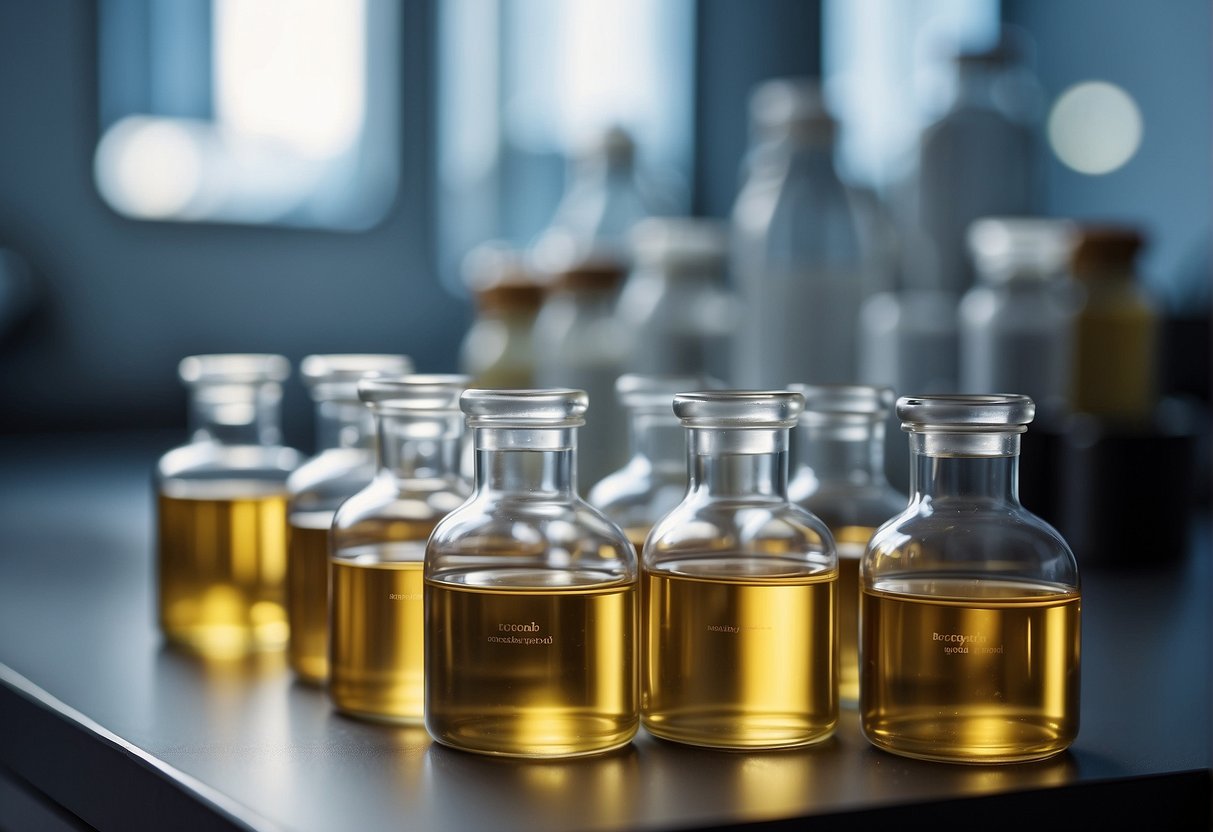
Tocopherol, commonly known as vitamin E, is a potent lipid-soluble antioxidant that protects cells from oxidative damage. It is instrumental for maintaining the integrity and function of skin cells.
Chemical Composition and Properties
Tocopherol consists of a chromanol ring with a hydrophobic side chain; it is this chemical structure that allows it to embed in the lipid layers of cell membranes. Different forms of tocopherol exist, with alpha-tocopherol being the most potent and biologically significant in humans due to its superior antioxidant properties. Our bodies preferentially absorb and accumulate this variant. Synthetic versions, labeled as "dl-alpha-tocopherol", differ slightly in effectiveness compared to their natural counterparts, known as "d-alpha-tocopherol".
Comparing Tocopherols and Tocotrienols
Beyond tocopherols, there are tocotrienols which, though similar in structure, contain three double bonds in their hydrophobic side chain. This distinction impacts their antioxidant efficiency and absorption. Both tocotrienols and tocopherols are within the vitamin E family; however, tocotrienols are not as widely researched as tocopherols. Our focus often remains on tocopherols due to their prevalence in the human diet and their significance in skin health.
Dietary Sources and Supplementation

In our pursuit of healthy skin, we focus on the critical role vitamin E plays, available through both natural diet and supplementation.
Natural Sources of Vitamin E
Vitamin E is abundant in a variety of foods, particularly in nuts and seeds. Sunflower seeds and almonds are notably high in this nutrient, serving as excellent dietary options for boosting skin health. Additionally, various vegetable oils such as wheat germ oil, sunflower oil, and corn oil are rich in vitamin E, making them beneficial for inclusion in our daily diet.
Vitamin E Supplements and Skincare Products
When diet alone does not meet our vitamin E needs, supplements offer a concentrated source. Vitamin E supplements and enhanced skincare products can assist in protecting the skin from damage and maintaining skin health. However, it's important to use these products as directed to avoid adverse effects, and to choose high-quality options that provide the best bioavailability for the skin.
Synergistic Effects with Other Nutrients
We consider the cooperative interactions between tocopherol, commonly known as vitamin E, and various nutrients that amplify its benefits for skin health.

Interplay with Vitamin C and Other Antioxidants
We find that tocopherol works hand in hand with vitamin C to fortify the skin's defense against oxidative stress. Vitamin C regenerates oxidized tocopherol, thereby reinforcing the antioxidant potential of each other. This partnership is vital for minimizing the visible effects of aging and protecting skin cells.
Enhancing Sun Protection with Tocopherol
We observe that tocopherol, alongside sunscreen, provides a more robust shield against UV-induced skin damage. When tocopherol is combined with sunscreen ingredients like zinc oxide, it can improve the efficacy of UV filters, offering enhanced sun protection. This relationship highlights the important role tocopherol can play in comprehensive skincare against sun exposure.
Potential Risks and Side Effects
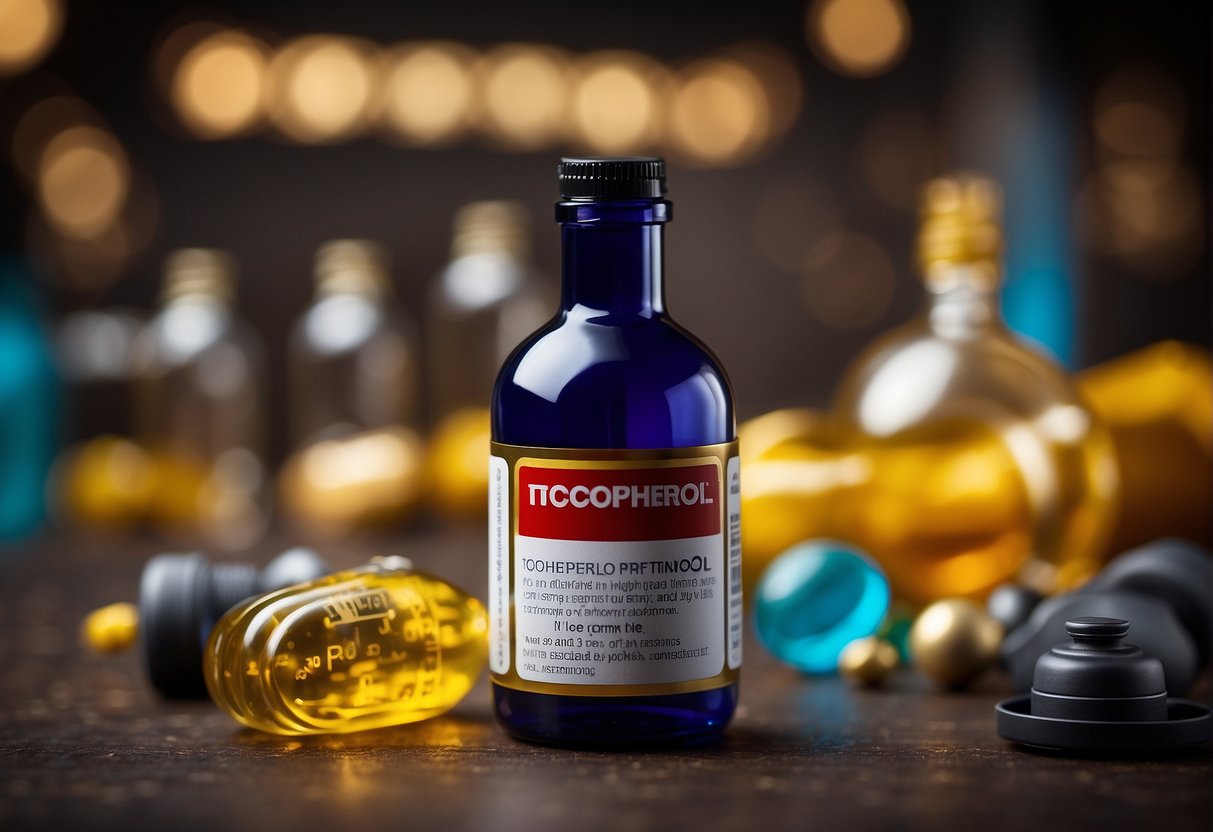
In our exploration of tocopherol's influence on skin health, we need to discuss the side effects and potential risks. Although risks are generally low, it is crucial to understand the specifics to ensure safe use.
Understanding the Side Effects
When considering the application or ingestion of tocopherol, which is a form of vitamin E, we note that side effects are typically rare at physiological levels. However, high doses of vitamin E supplementation can lead to systemic side effects such as nausea, fatigue, and headaches. In extreme cases, especially when taken orally in very high doses, tocopherol could potentially cause bleeding complications due to its effect on blood clotting.
Allergic Reactions and Comedogenicity
Allergic reactions to topical tocopherol are uncommon, but they can manifest as a rash, itching, or even swelling. It is also important to consider tocopherol's comedogenic properties, which can vary depending on skin type. For some individuals, tocopherol can occlude pores, potentially worsening acne concerns in those who are prone to comedogenic effects. It is imperative for us to advise testing on a small skin area to monitor for any allergic response before widespread application.
Environmental and Lifestyle Considerations
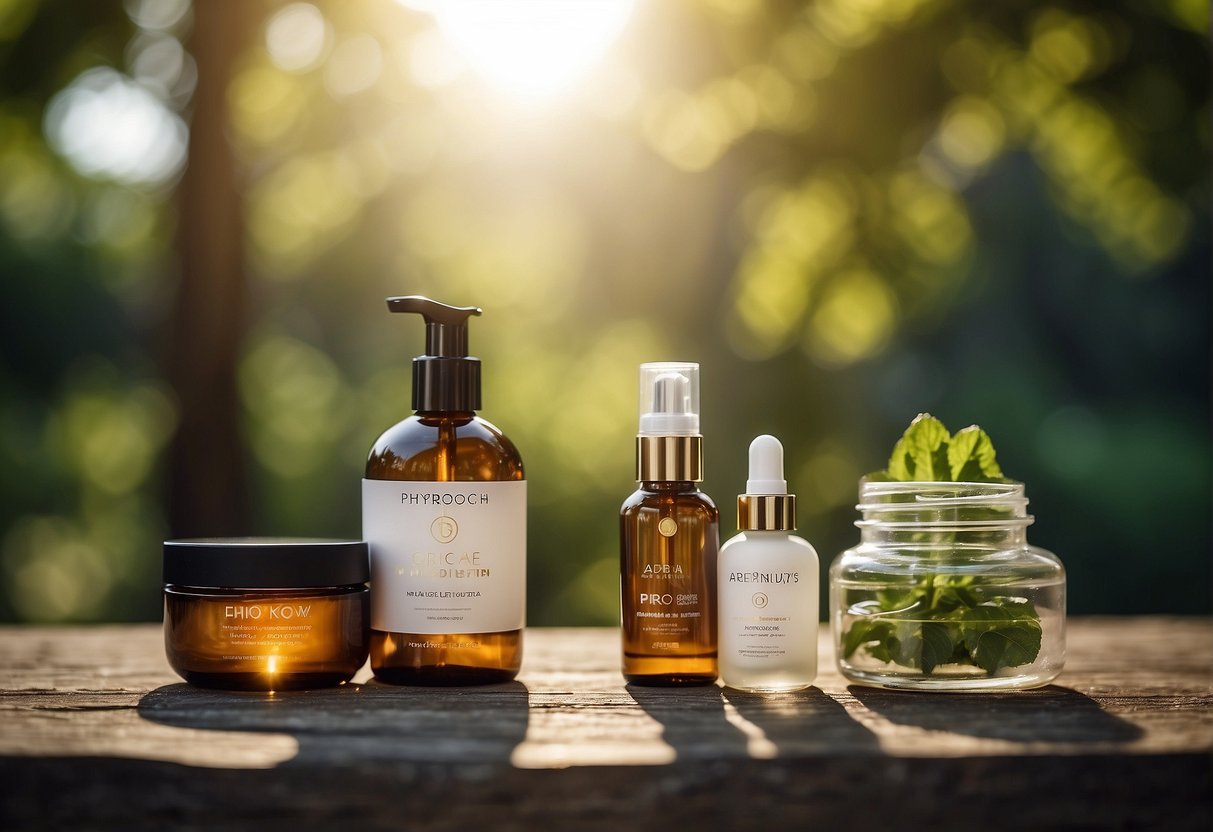
Our skin is constantly influenced by environmental factors and the choices we make in our diet. These play a significant role in the health and aging of our skin.
Sun Exposure and Vitamin E
Exposure to UV light can lead to sun damage, promoting oxidative stress in the skin. We understand that Vitamin E, particularly the form known as alpha-tocopherol, works as an antioxidant to neutralize harmful radicals, potentially reducing sun damage. Regular application of Vitamin E may also aid in decreasing transepidermal water loss, thereby maintaining healthy skin hydration.
Importance of a Balanced Diet
We recognize that a diet rich in fruits and vegetables contributes vital nutrients that can support skin health. These foods are high in antioxidants which help in protecting the skin from oxidative stress. Moreover, a well-balanced diet contributes to the regulation of sebum production, which can mitigate an array of skin conditions and support the skin’s barrier function.
Frequently Asked Questions
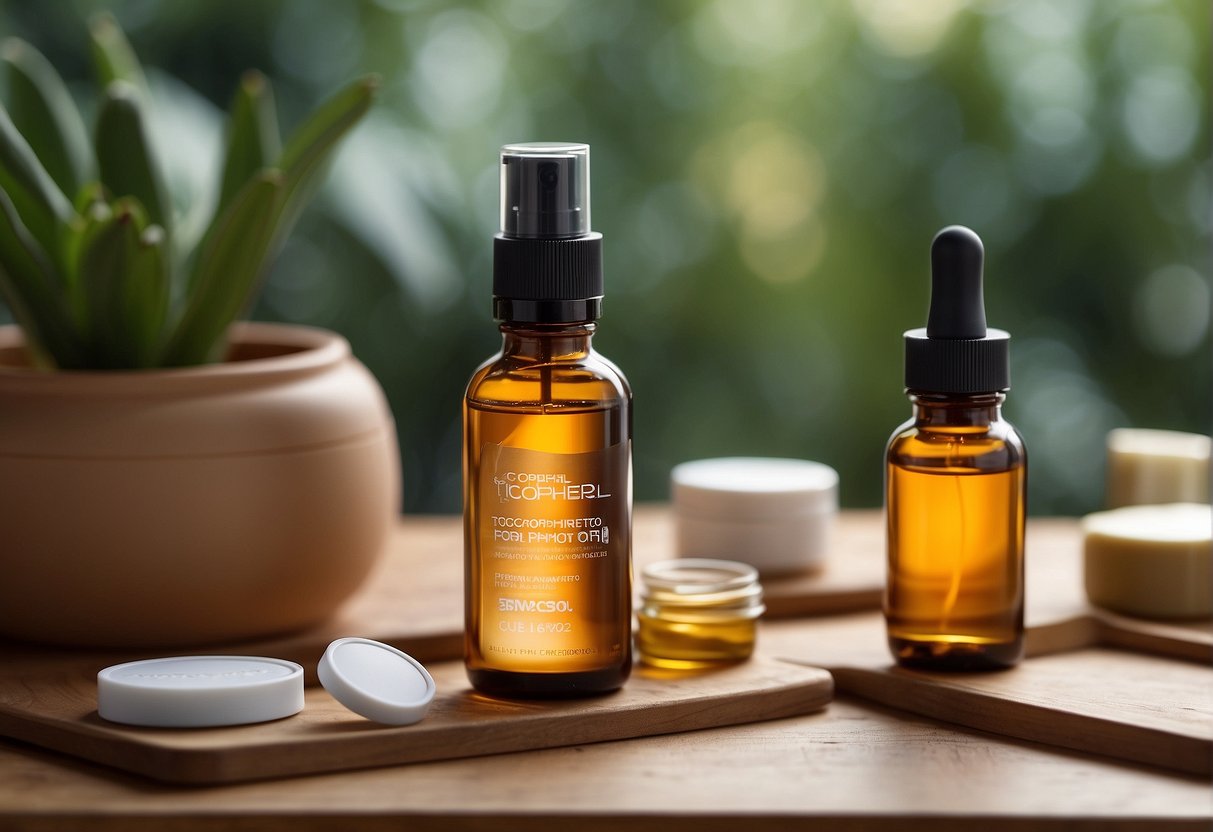
In our discussion about tocopherol for skin care, we'll answer some of the most pressing questions. We aim to provide clear insights into the efficacy and safety of tocopherol in topical applications.
What are the skin benefits of using vitamin E serums?
Tocopherol, the main form of vitamin E in serums, acts as a powerful antioxidant. It helps protect the skin from damage caused by free radicals and UV radiation, potentially reducing signs of aging.
Can vitamin E sourced from tocopherol improve skin complexion?
Utilizing tocopherol in topical products can improve skin texture and tone. It assists in the skin's healing process, which can lead to a more even complexion when used consistently.
Are there any risks associated with using tocopherol on the skin?
While tocopherol is generally safe for topical use, some individuals may experience irritation or allergic reactions. It's advised to perform a patch test before applying it broadly.
How might tocopherol in skin care products affect acne?
Tocopherol's antioxidant properties can benefit acne-prone skin by reducing oxidative stress. However, it should be noted that heavy formulations might exacerbate acne in very oily skin types.
What distinguishes tocopheryl acetate from tocopherol in terms of skin care?
Tocopheryl acetate is a more stable ester of tocopherol but must be converted into tocopherol in the skin to impart its antioxidant benefits. This can make tocopheryl acetate less potent but also possibly less irritating.
In what ways can vitamin E creams enhance skin health?
Vitamin E creams help in moisturizing the skin and improving the skin's natural barrier function. Regular application can assist in diminishing the appearance of scars and fine lines.